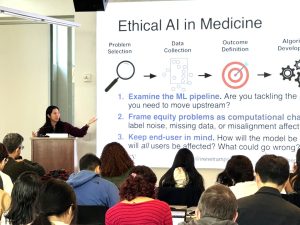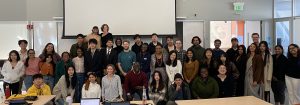[youtube id=”pKASroLDF0M”]
“Are you there, Bono? It’s me, Ananya Roy, and I live in public housing. I’m an educator, a professor at the world’s greatest public university, and I live in public housing…”
So began the first draft of Roy’s TEDxBerkeley talk, titled “(Un)Knowing Poverty.” She eventually cut the Bono reference at the top of the talk when we convinced her it was a bit much, but then she added another Bono reference somewhere in the middle. We win some, lose some. Here are a few (non-Bono) highlights:
I can say the home I live in is public housing because the tax deduction my partner and I enjoy on our mortgage is a more substantial handout than any money spent by the U.S. government on what has come to be stereotyped and vilified as public housing, and there are millions of other families that have enjoyed the same benefit . . . I start with this example because it forces us to (Un)Know Poverty, to call into question the familiar frames through which we know poverty, especially the frames of dependency and welfare.”
. . .
“The always snarky and smart William Easterly, in his influential critique of foreign aid, The White Man’s Burden, has this line: “The rich have markets, the poor have bureaucrats.” On this one, Easterly is wrong, very wrong. The rich have state help, the poor have self help.”
. . .
“To (Un)Know Poverty is to make a shift from asking how we can help the poor to asking how poverty is produced, to asking how wealth, power and privilege are maintained. To (Un)Know Poverty is to make a shift from tinkering with a charity that can do good to transforming the policies that enable wealth but impoverish poverty. To (Un)Know Poverty is to find the impossible space of poverty action.”
For more coverage of Prof. Ananya Roy’s TEDxBerkeley talk, click here.
Photos below by HalinaV Photography.





